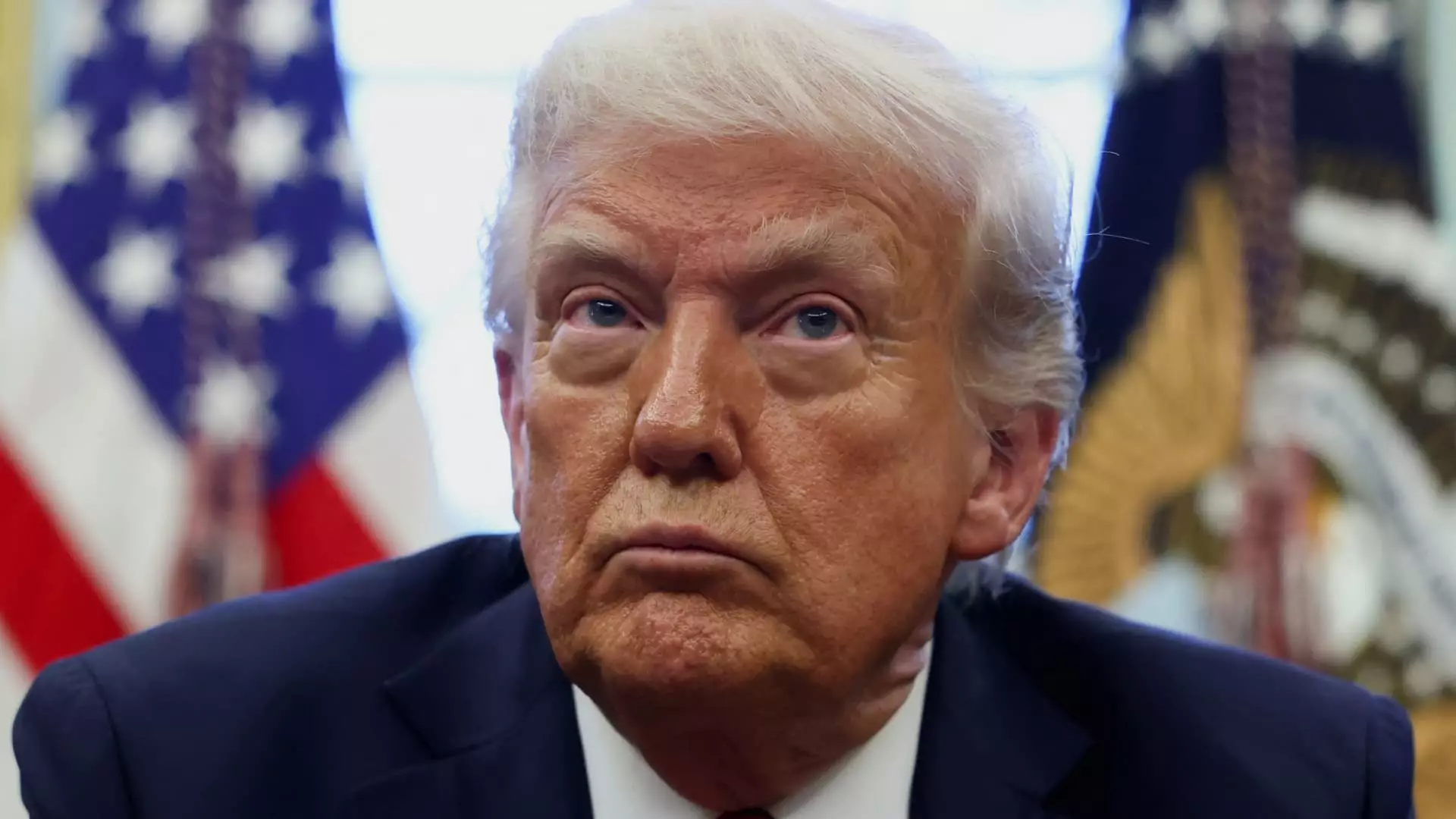In a development that sends shivers down the spine of federal employment, President Donald Trump has announced a drastic reclassification plan for tens of thousands of federal workers. This move, described by Trump as a step toward running the government “like a business,” is cloaked in the veneer of efficiency yet threatens to destabilize the very foundation of civil service protections. Those who work on policy matters will now find themselves categorized as “schedule policy/career,” a designation that effectively strips away job security, placing countless employees in a precarious situation.
This reclassification is not merely a benign administrative adjustment; it has the potential to catalyze mass layoffs, leveraging the excuse of government efficiency to erase the protections that these workers previously enjoyed. With an astounding 2.3 million federal workforce currently on the chopping block, the implications are profound. Trained professionals who dedicate their careers to the public good could find themselves categorized as expendable at the whim of political leadership.
The Shadows of Schedule F
Trump’s revisitation of the controversial Schedule F—a directive he initiated at the start of his first term—was met with swift condemnation and was promptly revoked by President Biden. Yet, in a dizzying political twist, Trump is resurrecting this idea, amplified to encompass a broader swath of the federal workforce. Experts predict that the new directive could affect hundreds of thousands, transforming the workplace into a realm where job security evaporates amid bureaucratic games.
This tactic echoes the darkly efficient measures of corporate America, where employees are often treated as mere numbers in a ledger, completely at the mercy of executive decisions. Such a mindset in public service undermines the fundamental principles of meritocracy, which aim to uphold standards of competency and integrity in governance. The historic pushback against politicizing the civil service has been diligent, and yet, the current trajectory points toward a systemic erosion of that laborious progress.
Dangerous Precedents and Backlash from Unions
The reaction from labor leadership has been vocal and pointed. Everett Kelley, head of the American Federation of Government Employees—representing a significant portion of federal workers—is rightly alarmed. His warnings about the risks of politicizing federal employment resonate with the concerns of many observers who fear this move will lay the groundwork for a return to an era where public servants are unable to act independently, driven instead by the whims of their political overlords.
This transition, championed by Trump and supported by figures like tech mogul Elon Musk, does not merely serve the stated goal of trimming waste; it also signifies an alarming ideological shift toward an anti-union, anti-labor vision for the federal sector. The claims of a bloated government mask a more insidious agenda—stripping away the rights of workers who contribute immeasurably to the functions of democracy.
Critics argue that this maneuver is emblematic of a larger battle between accountability and autonomy in public service. What is at stake is not simply budget cuts; rather, it is about safeguarding the public’s trust in a government that must operate not for the privilege of a chosen few, but rather for the benefit of all citizens.
As the events unfold, it is essential for stakeholders across the political spectrum to reflect on the ramifications of this policy shift. The reclassification of federal employees represents not just a set of new job titles, but rather the unsettling potential for renewed instability in a foundational institution that networks our democratic fabric.


Leave a Reply